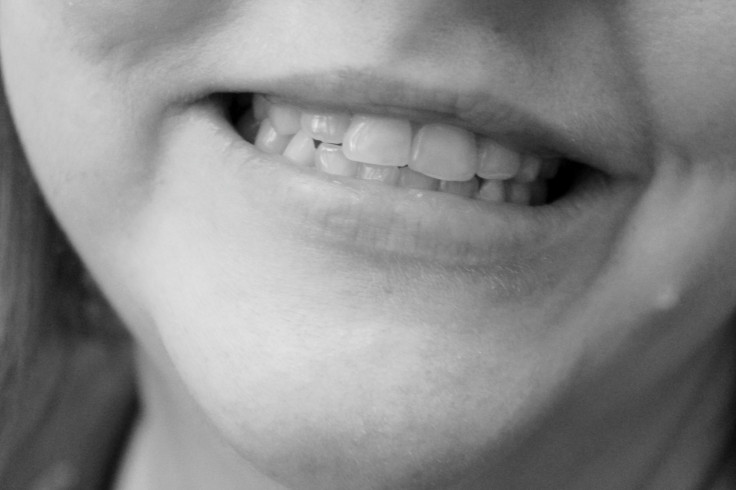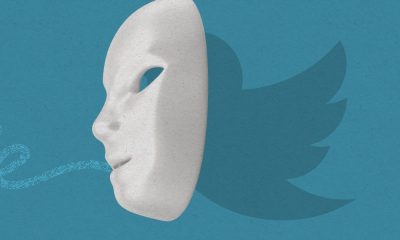Health
From Cupping To Gua Sha: 25 Reasons To Try Traditional Chinese Medicine
Published
2 years agoon
By
Terry Power
Traditional Chinese Medicine (TCM) has been evolving over the past 2,000 years, and is very much a phenomenon in the United States.
TCM builds on the idea that to achieve overall wellness, a connection of mind and body must be established. The combined energy of a person’s qi (vital life force), other complementary forces called yin (passive) and yang (active), and the TCM-specific five elements–fire, water, earth, wood, and water–can deliver on-point treatment for a great number of issues, the practitioners believe.
It’s now common to see many a beauty influencer gushing over Gua Sha, which is a time-honored face muscle manipulation device used to bolster skin’s firmness and delay aging. Gua Sha’s application isn’t solely restricted to the face, as the scraping method is also used across the body to address chronic pain.
You may have also heard of “cupping” which is used as part of TCM. The method focuses on the release of the stagnation of blood and lymph, thereby improving the qi flow, which, in turn, treats many respiratory diseases, such as the common cold, pneumonia, and bronchitis.
However, it is only natural to speculate whether these treatment options really do work wonders. To understand this, we must first learn what TCM is all about.
What is TCM?
TCM, like Indian Ayurveda, is one of the oldest forms of healthcare, which is centered around natural treatments like acupuncture, herbal remedies, dietary advice, and exercise (tai chi). It is a holistic approach to healing by establishing mind-body harmony. Oftentimes, people steer clear of such old methods, doubting their merits to deliver effective and long-term results, but here are 25 good reasons why such views about TCM are baseless:
1. TCM could solve many organ-related issues
“Traditional Chinese Medicine (TCM) treats a number of issues and approaches treating ailments from a holistic perspective. A variety of symptoms are treatable such as pain, IBS, colitis, infertility, neuropathy, arthritis, insomnia, stress, and depression. TCM can treat chronic and/or acute problems as well,” Simone Wan, founder of new Traditional Chinese Medicine brand IN:TotalWellness, told Forbes.
Photo by Chinh Le Duc on Unsplash
2. It outweighs the risk factors of western medication
“Both women and men of all ages visit me in my clinic. I’ve seen infants for colic and people in their 90s for pain. Western medicine plays a huge role in people’s health care. Sometimes a client would visit me to avoid using Western medicine as many pharmaceutical medicines come with risky side effects,” said Wan.

Pixabay
3. It gives effective cancer protection
According to a study published in The Journal of Traditional & Complementary Medicine, TCM has a rich antioxidant profile that lowers oxidative stress and inflammation, thus protecting cells, tissues, and organs against cancer.

PDPics – Pixabay
4. TCM is majorly non-invasive
TCM encompasses herbal medicines and some mind-body practices. Even though several procedures would require stimulation of muscles or oral consumption of herbs, only acupuncture involves the insertion of very thin needles through the skin and many strategic points in the body.

Photo courtesy of Reueters/Shannon Stapleton
5. TCM is gaining recognition on the global stage
Heeding the years-long campaign by TSM advocates, the World Health Assembly, the governing body of the WHO, gave its nod to integrate the therapy into mainstream healthcare. Many medical communities called out the move, citing the toxicity of certain Chinese herbs. But there is a growing body of evidence that TCM has found a place on the global stage as a trusted clinical practice, as many opened up about benefiting from a broad range of conditions.

Photo by Chinh Le Duc on Unsplash
6. You are allowed to remain fully clothed during the procedure
While many may not like the idea of stripping down for a stranger during massage practices. TCM, during Tui Na (traditional Chinese massage therapy), doesn’t require you to be naked.

DR-HO’S
7. The health benefits of Tai Chi (shadowboxing)
Tai Chi or shadowboxing is a gentle form of exercise that is an integral part of the TCM method. Aptly described as the “meditation in motion,” it gives you both mindfulness and myriad other health benefits.

Photo courtesy of Pixabay
8. TCM is deemed safe for even those with crucial heart or lung conditions
Research over the years has built a compelling case for TCM as the safest way to treat many medical problems, including stroke, heart disease, and even psychological disparities.

Photo courtesy of Shutterstock
9. TCM has a robust market size
TCM now boasts of a market size that reached past the 18 million mark in 2021, which proves more and more people are joining the growing network.

Reuters/Aly Song
10. TCM has a different approach to health altogether
TCM practitioners believe that emotions and physical health are intrinsically connected and they, therefore, aim to regulate a person’s emotional reactions to treat the overall health.

https://pixabay.com/photos/stress-anxiety-depression-unhappy-2902537/
11. Cupping is an old method to improve posture
This healing method involves placing cups on the skin to create suction. The pressure, in turn, unlocks vital energies that heal many conditions like poor posture, muscle strain injury, etc. Celebrities from Jennifer Aniston, Gwyneth Paltrow, and Victoria Beckham to Michael Phelps, Ian Kennedy, Steven Adams, and Alexander Naddou, all have tried their hands at integrative therapy and reaped benefits.
“Cupping therapy is one of the most ancient and revered healing techniques,” Dr. Jessica Duncan Propes, Atlanta-based doctor of chiropractic specializing in sports injury management, recovery, and wellness care, told Forbes.

Scott Webb / Pixabay
12. Some TCM herbs have aphrodisiac qualities
Some TCM herbs, such as horny goat weed, Bird’s nest, Ginseng, and Goji Berries are known to boost your performance between the sheets. It is known to boost many kidney and liver problems as well.

Pixabay
13. TCM can treat depression
Depression is a multi-genetic syndrome. Antidepressants don’t go a long way in treating the psychological condition, as the body grows resistant to them. Traditional Chinese Medicine has historically been proven to treat depression effectively up till today.

Photo courtesy of Shutterstock
14. TCM dietary therapy corrects organ imbalances
TCM dietary therapy is considered a powerful tool to treat organ imbalances. Through different branches of TCM, namely acupuncture, herbal therapy and Qi Gong (therapeutic movement exercise), optimal healing results can be provided to the body.

Photo courtesy of Shutterstock
15. TCM slows down aging
TCM has profound anti-aging values, and the statement is backed up by many peer-reviewed studies. The naturally active chemicals in the herbs can treat aging-associated disorders.

Pixabay
16. TCM aids digestion
Digestive health works hand in hand with overall benefits, and many TCM herbs like Cinnamon bark, Hawthorn berry can effectively tone down the digestive fire of an irritated stomach and improve overall gut health.

Photo courtesy of Pixabay, public domain
17. TCM improves sleep apnea
Getting a restful snooze through the night may seem like a distant dream for those with a sleeping disorder. Sleep disorders are usually attributed to an irritated stomach and dwindled blood circulation. Consuming a hot cup of chrysanthemum tea before bed cools down the stomach, whilst adding some Goji berries to the tea improves blood circulation.

GhostBed
18. TCM is helpful for dementia patients
Dementia is a brain disease that destroys brain cells and the cognitive abilities of a person, especially among those who have crossed 60 years of age. The most common type of dementia, named Alzheimer’s Disease, can be very well addressed by acupuncture, a study said.

Anders Nord/Unsplash
19. TCM is beneficial for young kids
Debunking the myth that TCM is ineffective for young children, a study noted that it prevents a number of illnesses from occurring and after that recurring. There has also been a growing trend of parents trying out TCM to build up immunity in children.

Amanda Mills/Pixnio
20. TCM improves bone health
The World Health Organization (WHO) noted that osteoporosis is a systematic bone disorder characterized by reduced bone mass and microarchitectural degeneration of osseous cells, which makes them vulnerable to fracture. A study noted that through TCM-related herbal medication, acupuncture, food, and exercise, bone regeneration is possible.

Getty Images Christopher Furlong / Staff
21. TCM treats Candidiasis
Candidiasis is a condition that stems from the overgrowth of a yeast-like fungus called Candida albicans. The major concentration of this fungus is seen in the mouth, vagina, intestines, and other organs. Acupuncture is a potent method to fight off Candida as well as recurring yeast infections and thrush in the mouth.

Bradley Gordon (CC BY 2.0)
22. TCM has remedial properties against COVID-19
Last year, a WHO panel recommended the use of traditional Chinese medicines, saying they help treat the symptoms and thereby reduce the risk of progression from mild-to-moderate cases.

Usplash
23. TCM can cure infertility
Move over painful IVF sessions, as TCM has a bountiful source of attributes that can solve many issues with the reproductive system and restore fertility.

Photo courtesy of Shutterstock
24. TCM helps reduce stress
TCM methods, such as acupuncture and moxibustion, generate relaxing responses and the healing compounds in the herbs manage stress levels, and promote calmness, tranquility, and rest.

Photo Courtesy of Pixabay
25. Acupuncture enhances one’s appearance
Cosmetic acupuncture, alternatively known as facial acupuncture, is also a part of TCM, which improves skin elasticity in the regions like head, face, and neck. As a result, skin health appears plumper and appears healthy from within.

Pixabay
Published by Medicaldaily.com
You may like
-


Decoding the data of the Chinese mpox outbreak
-


The Download: Meta’s new AI system, and covert Chinese social media activity
-


Spotting Chinese state media social accounts continues to be a challenge
-


The US city that scares Chinese Amazon sellers
-


The counterfeit lawsuits that scoop up hundreds of Chinese Amazon sellers at once
-


The Twitter accounts that impersonate Chinese celebrities for clout and cash
Health
Feeling Tired All The Time? Possible Causes And Solutions
Published
2 years agoon
22 June 2023By
Terry Power
Long days of work, lack of sleep, and stress at the office can be the most common factors that make you feel tired. However, feeling “tired all the time” (TATT) without known reasons can be an indication of an underlying health issue that needs immediate attention.
Finding the exact cause of the lingering tiredness can be the first step toward solving the symptom.
Health conditions that cause fatigue:
1. Anemia – Anemia is one of the most common causes of fatigue. A person who has anemia does not have enough red blood cells in the body, causing symptoms such as tiredness, dizziness, feeling cold and crankiness.
Most often, anemia is caused by iron deficiency. Hence, the condition can be best resolved by including iron-rich foods in the diet and use of iron supplements.
2. Sleep Apnea – It causes the body to stop breathing momentarily during sleep. The condition can affect the quality of sleep and hence make you feel fatigued.
For milder cases of sleep apnea, lifestyle changes such as losing weight or quitting smoking can help solve the sleep disorder. In more severe cases where there is an obstruction in breathing, surgeries and therapies can help.
3. Diabetes – A person who has diabetes has changes in blood sugar level, which can cause fatigue. A patient who is already on diabetic medication can also experience tiredness as a side effect of the medication.
Early identification and taking the correct treatment is the key to managing diabetes. Losing extra weight and having a healthy diet also help in the treatment.
4. Thyroid – Thyroid diseases can be due to an overactive or an underactive thyroid gland. In people who have an underactive thyroid (hypothyroidism), the metabolism slows down leading to symptoms such as lethargy and fatigue. In people with an overactive thyroid (hyperthyroidism), the metabolism speeds up leading to fatigue and difficulty sleeping.
Right diet and lifestyle choices, along with medications, can help in thyroid management.
5. Infections – A person can show symptoms of fatigue when the body is fighting a viral or bacterial infection. Infections ranging from the flu to HIV can cause tiredness.
Along with fatigue, other symptoms such as fever, headache, body aches, shortness of breath and appetite loss can also accompany the infection. Treating the symptoms and taking adequate rest helps in faster recovery.
6. Food allergies – Fatigue may be an early warning sign of hidden food allergies and autoimmune disorders such as celiac disease. Identifying the allergen using a food allergy test or through an elimination diet can help in allergy treatment.
7. Heart disease – If you feel exhausted from an activity that used to be easy, then it is good to check your heart health, as fatigue can be an indication of underlying heart disease.
8. Depression/ anxiety – Fatigue can also be an indicator of a mental health disorder such as depression or anxiety. A combination of medication and psychotherapy can help relieve symptoms.
Lifestyle causes
Apart from serious health conditions, certain lifestyle habits such as dehydration, poor diet, stress and insufficient sleep can cause exhaustion. Having a well-balanced diet, regular exercise and routine sleep can help solve fatigue caused by lifestyle habits.
Published by Medicaldaily.com
Health
How To Overcome Your Sleep Debt And Reclaim Energy
Published
2 years agoon
22 June 2023By
Terry Power
Picture this: you’re burning the midnight oil, studying or binge-watching your favorite shows, all at the expense of a good night’s sleep. Have you ever stopped to think about the toll it takes on your body and mind? The consequences can be more serious than you might realize.
Not getting enough sleep can translate into a multitude of issues, including weight gain, lack of focus, tiredness, a haze of confusion, and even depression. If you too are encountering similar issues lately then chances are you have a sleep debt.
Wondering what is sleep debt?
People from 13-18 years of age need 8 hours of sleep, whilst adults beyond that age will require at least 7 hours of snooze.
Sleep debt is a collection of the total hours you haven’t slept or traded your sleep for something else. Sleep debt keeps piling up as a person falls short of the total hours of sleep recommended for an adult, according to the Centers for Disease Control and Prevention.
And when you keep letting go of your sleep for other activities, the body adapts to the new normal and effects start to reflect on the energy levels, which deplete.
“However, like every other debt out there, this too has a repayment option,” Dr. Kunal Kumar, medical director of the Sleep Center at Einstein Medical Center in Philadelphia, told Livestrong.
Below are some expert-vetted ways you can pay back the sleep debt. (Courtesy: Livestrong and Sleepfoundation)
Just like financial debt, imagine sleep debt as a debt you owe to your body. It needs to be repaid. The good news is that catching up on sleep is indeed possible.
- Maintain a set sleep schedule: Overhauling the sleep schedule is a pretty difficult task to achieve, and it’s best to do that gradually. Create a set sleep schedule by making some small changes to your routine. Instead of making abrupt shifts in your bedtime or wake-up time, adjust them gradually by 15 to 30-minute increments.
- Minimize your gadget usage: Wind down activities and minimize electronic usage before bed to promote better sleep. Relax and prepare for quality sleep by dimming the lights and setting an alarm for 30 minutes to an hour before bed.
- Reshuffle your sleeping arrangements: Are you finding it hard to get a good night’s sleep due to excessive sweating? Well, here’s a handy solution: consider upgrading to a cooling mattress or opting for cooling sheets. These innovative sleep essentials can help regulate your body temperature, and keep you comfortably cool throughout the night, ensuring a more blissful slumber. Memory foam pillows can work wonders in relieving neck and back discomfort in case you are struggling with backache.
- Improve the bedroom environment: Create a sleep-friendly bedroom environment by adjusting the temperature for comfort, and blocking out disruptive lights, or noises that might disturb your restful slumber. And if your mattress, pillow, or sheets are worn out or no longer providing the support you need, consider treating yourself to new ones.
Published by Medicaldaily.com
Health
Omega-3 Fatty Acids Slow The Progression Of Amyotrophic Lateral Sclerosis: Study
Published
2 years agoon
22 June 2023By
Terry Power
Omega-3 fatty acids are known for a range of health benefits, from promoting brain and heart health to reducing inflammation and protection against several chronic conditions.
In a new study, researchers found that omega-3 acids, especially the type found in foods like flaxseeds, walnuts, chia seeds, canola oil and soybean oil, can slow down the progression of amyotrophic lateral sclerosis (ALS).
It is a debilitating nervous system disease that gradually worsens over time and can be fatal. The condition results in a loss of muscle control and affects the nerve cells in the brain and spinal cord. It is also known as Lou Gehrig’s disease after the baseball player who was diagnosed with it.
The initial symptoms of the disease include muscle weakness, difficulty in walking and hand movements. The symptoms can slowly progress to difficulties with chewing, swallowing, speaking and breathing.
The exact cause of ALS is not known. However, around 10% of people get it from a risk gene passed down from a family member. It is estimated that more than 32,000 people in the U.S. live with the condition.
In the latest study, researchers from Harvard T.H. Chan School of Public Health in Massachusetts evaluated 449 people living with ALS in a clinical trial. The team assessed the severity of their symptoms, the progression of their disease, along with the levels of omega-3 fatty acids in their blood, for 18 months.
The study suggested that alpha-linolenic acid (ALA), a type of omega-3 found in plants, is particularly beneficial in slowing the progression of ALS. The participants with the highest levels of ALA had a 50% reduced risk of death during the study period compared to those with the lowest levels of ALA.
Researchers also found a reduction in death risk in participants who had eicosapentaenoic acid, the type of omega-3 fatty acid found in fatty fish and fish oil, and linoleic acid found in vegetable oils, nuts and seeds.
A previous study conducted by the same team suggested that a diet high in ALA and higher blood levels of the nutrient could reduce the risk of developing the condition.
“In this study, we found that among people living with ALS, higher blood levels of ALA were also associated with a slower disease progression and a lower risk of death within the study period. These findings, along with our previous research suggest that this fatty acid may have neuroprotective effects that could benefit people with ALS,” said Kjetil Bjornevik, the lead author of the study.
Published by Medicaldaily.com
